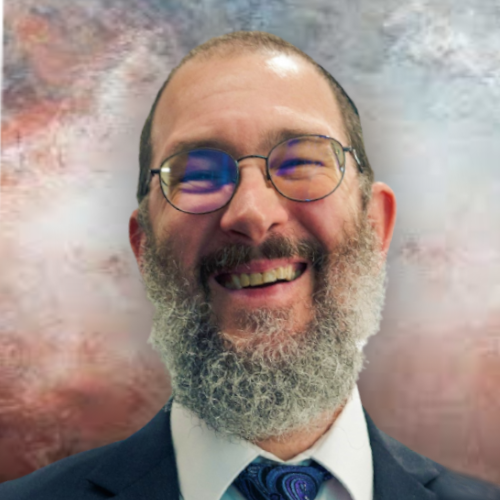
Do you recognize the name Bert Lahr?
Your parents (or grandparents) knew him well: He attained cinematic immortality with his role as the Cowardly Lion in the 1939 film classic, "The Wizard of Oz." His more enduring legacy, however, may cast a darker shadow across the face of popular culture.
In 1963, Lay's potato chips launched an ad campaign that would enshrine one of the most memorable taglines in marketing history: "Nobody can eat just one!" Bert Lahr delivered that line dressed up not in a lion suit but costumed, alternatively, as Christopher Columbus, Caesar's assassin Brutus, Eve in the Garden of Eden, and the devil himself.
As an interesting footnote (according to what might be an urban legend), a man from Dayton, Ohio, videoed himself eating a single chip, then sued Lay's for false advertising and mental anguish. The story goes that Lay's settled the suit for an undisclosed amount.
If, indeed, there was emotional trauma, it likely had less to do with deceptive marketing and more to do with the underlying truth of the slogan. By design, Lay's signature salty-crunchy combination elicits a physiological response almost as irrepressible as chemical addiction.
More recently, the dynamic whereby chips create craving has been named for a different brand, providing this week's entry into the Ethical Lexicon:
Doritos Theory
The principle that minimally satisfying experiences are maximally addictive.
The origins of the term are unclear, but we have TikToker Celeste Aria to thank for popularizing it in a video with over 3 million views. Her observations are compelling.
A well-balanced meal leaves us satiated because it not only pleases the palate but also provides nutrition for the body. In contrast, junk food will more likely increase stress and promote depression. By tantalizing our tastebuds without offering nutritional benefit, the intake of empty calories immediately leaves us hungry for more.
That's bad enough. But Doritos Theory extends far beyond snack food.
The phenomenon explains other addictive activities, most notably scrolling, binge-watching, gambling and amusement park roller coasters. Even more concerning, it can underlie dysfunctional personal relationships, reckless business decisions and toxically shallow political viewpoints.
Anyone who has learned to cook a proper meal, play a musical instrument or master a competitive sport knows that discipline and determined effort provide the most reliable recipe for success. That's why, if our relationships leave us dissatisfied, it's likely that we aren't investing enough of ourselves to make them work. Similarly, when we respond to ads (or candidates) promising overnight results, we surrender to exploitation by charlatans who manipulate the impulse response centers of our brains.
The tension between immediate gratification and long-term satisfaction is hardwired into our gray matter. Managing that tension can be both challenging and enormously frustrating. However, inner conflict is precisely what prepares and empowers us for ethical decision-making: Making the right choices depends on weighing short-term costs against long-range benefits, and vice versa.
By first engaging the prefrontal cortex — which observes and evaluates with cool assessment — we offset the urge to chase every bright, shiny object and flee from every dark shadow. Once our more disciplined selves have surveyed the options available to us, we are better equipped to rein in the influence of the amygdala — the seat of visceral impulsiveness — so that it spurs us toward measured rather than irresponsible action.
Whether in our diets, our business decisions, our political philosophies or our relationships, recognizing and resisting the influence of Doritos Theory is the first step toward acquiring the true benefits of enduring success. By curbing our appetite for instant gratification, we train ourselves to appreciate the genuine satisfaction that comes from determined effort. From there, the payoff of real contentment and lasting rewards waits right around the corner, both for ourselves and for those closest to us.
How do we start to reframe our priorities? We can begin by taking to heart the observation of philosopher and Presidential Medal of Freedom recipient Eric Hoffer:
"You can never get enough of what you don't need to make you happy."
(COMMENT, BELOW)
Rabbi Yonason Goldson graduated from the University of California at Davis with a degree in English, which he put to good use by setting off hitchhiking cross-country and backpacking across Europe. He eventually arrived in Israel where he connected with his Jewish roots and spent the next nine years studying Torah, completing his rabbinic training as part of Ohr Somayach's first ordination program. After teaching yeshiva high school for 23 years in Budapest, Hungary, Atlanta, Georgia, and St. Louis, Missouri, Rabbi Goldson established himself as a professional speaker and advisor, working with business leaders to create a company culture built on ethics and trust. He has published seven books and given two TEDx Talks, is an award-winning host of two podcasts, and writes a weekly column for Fast Company Magazine. He also serves as scholar-in-residence for congregations around the country.


 Contact The Editor
Contact The Editor
 Articles By This Author
Articles By This Author